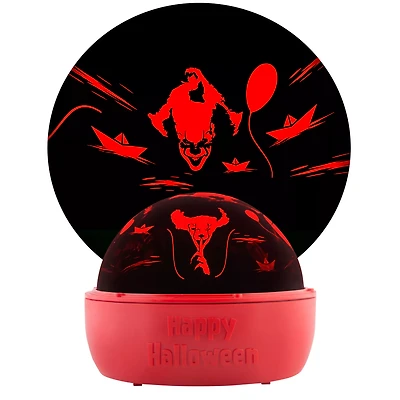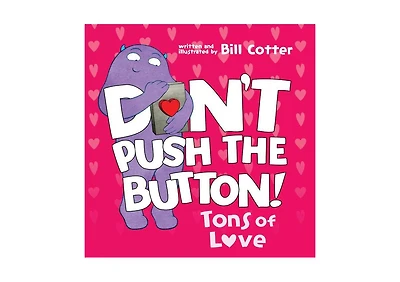Home
Love as Projection
Barnes and Noble
Loading Inventory...
Love as Projection in Franklin, TN
Current price: $13.99

Barnes and Noble
Love as Projection in Franklin, TN
Current price: $13.99
Loading Inventory...
Size: CD
Frankie Rose
's personalized brand of sharp-cornered pop shines through no matter what form her music takes. Her earliest solo material was reverb-heavy D.I.Y. garage punk similar to the early iterations of both the
Vivian Girls
and
Dum Dum Girls
that she'd been a part of, but her love of glossy synth pop was working its way into her sounds as early as her 2012 album
Interstellar
. While subsequent records mixed organic, goth-tinged rock instrumentation with subtle digital undercurrents,
Rose
goes all in on electronic pop with her fourth solo effort,
Love as Projection
. Opening track "Sixteen Ways" serves as a no-nonsense introduction to her new approach, with a dense instrumentation heavy on swelling bass synths, fluttering melodic keyboard arpeggios, and brittle but beautiful vocal harmonies. There are some guitars in the mix, but they're relegated to the background to make space for
's futuristic sounds to unfurl. "Anything" is much the same, but guided more by melodic hooks that call up the Day-Glo tones of '80s new wave.
gets deeper with the electronic production as the album goes on, implementing wobbly sub-bass rhythms and subtle drum'n'bass breaks on the moody "Had It Wrong" and spiraling ping-pong delays on the minimal but head-spinning "Molotov in Stereo." Her full embrace of electronics takes a slightly different articulation on each of
's ten tracks. There's a dreamy nostalgia akin to
M83
on "DOA," but the prominence of roughed-up, chorus-doused bass guitar and noisy interjections are in keeping with the kind of uncommon arrangements
has been creating since her earliest days. Her experiments with ambient softness on "Feel Light" and drawn-out and cyclical album closer "Song for a Horse" feel connected to the more upbeat tracks by the way she carefully weaves together layers of melody. The album is an unequivocal move into new territory for her, but it also doesn't feel awkward or ill-fitting in its sweeping change. The lush synths and bubbling beats carry the same wild dreaminess she achieved on songs where she was covering D.I.Y. rock songs in sheets of reverb, and it's more
's exacting and specific songwriting design than the instrumentation that makes
feel so wonderfully strange, secret-keeping, and exciting. ~ Fred Thomas
's personalized brand of sharp-cornered pop shines through no matter what form her music takes. Her earliest solo material was reverb-heavy D.I.Y. garage punk similar to the early iterations of both the
Vivian Girls
and
Dum Dum Girls
that she'd been a part of, but her love of glossy synth pop was working its way into her sounds as early as her 2012 album
Interstellar
. While subsequent records mixed organic, goth-tinged rock instrumentation with subtle digital undercurrents,
Rose
goes all in on electronic pop with her fourth solo effort,
Love as Projection
. Opening track "Sixteen Ways" serves as a no-nonsense introduction to her new approach, with a dense instrumentation heavy on swelling bass synths, fluttering melodic keyboard arpeggios, and brittle but beautiful vocal harmonies. There are some guitars in the mix, but they're relegated to the background to make space for
's futuristic sounds to unfurl. "Anything" is much the same, but guided more by melodic hooks that call up the Day-Glo tones of '80s new wave.
gets deeper with the electronic production as the album goes on, implementing wobbly sub-bass rhythms and subtle drum'n'bass breaks on the moody "Had It Wrong" and spiraling ping-pong delays on the minimal but head-spinning "Molotov in Stereo." Her full embrace of electronics takes a slightly different articulation on each of
's ten tracks. There's a dreamy nostalgia akin to
M83
on "DOA," but the prominence of roughed-up, chorus-doused bass guitar and noisy interjections are in keeping with the kind of uncommon arrangements
has been creating since her earliest days. Her experiments with ambient softness on "Feel Light" and drawn-out and cyclical album closer "Song for a Horse" feel connected to the more upbeat tracks by the way she carefully weaves together layers of melody. The album is an unequivocal move into new territory for her, but it also doesn't feel awkward or ill-fitting in its sweeping change. The lush synths and bubbling beats carry the same wild dreaminess she achieved on songs where she was covering D.I.Y. rock songs in sheets of reverb, and it's more
's exacting and specific songwriting design than the instrumentation that makes
feel so wonderfully strange, secret-keeping, and exciting. ~ Fred Thomas
Frankie Rose
's personalized brand of sharp-cornered pop shines through no matter what form her music takes. Her earliest solo material was reverb-heavy D.I.Y. garage punk similar to the early iterations of both the
Vivian Girls
and
Dum Dum Girls
that she'd been a part of, but her love of glossy synth pop was working its way into her sounds as early as her 2012 album
Interstellar
. While subsequent records mixed organic, goth-tinged rock instrumentation with subtle digital undercurrents,
Rose
goes all in on electronic pop with her fourth solo effort,
Love as Projection
. Opening track "Sixteen Ways" serves as a no-nonsense introduction to her new approach, with a dense instrumentation heavy on swelling bass synths, fluttering melodic keyboard arpeggios, and brittle but beautiful vocal harmonies. There are some guitars in the mix, but they're relegated to the background to make space for
's futuristic sounds to unfurl. "Anything" is much the same, but guided more by melodic hooks that call up the Day-Glo tones of '80s new wave.
gets deeper with the electronic production as the album goes on, implementing wobbly sub-bass rhythms and subtle drum'n'bass breaks on the moody "Had It Wrong" and spiraling ping-pong delays on the minimal but head-spinning "Molotov in Stereo." Her full embrace of electronics takes a slightly different articulation on each of
's ten tracks. There's a dreamy nostalgia akin to
M83
on "DOA," but the prominence of roughed-up, chorus-doused bass guitar and noisy interjections are in keeping with the kind of uncommon arrangements
has been creating since her earliest days. Her experiments with ambient softness on "Feel Light" and drawn-out and cyclical album closer "Song for a Horse" feel connected to the more upbeat tracks by the way she carefully weaves together layers of melody. The album is an unequivocal move into new territory for her, but it also doesn't feel awkward or ill-fitting in its sweeping change. The lush synths and bubbling beats carry the same wild dreaminess she achieved on songs where she was covering D.I.Y. rock songs in sheets of reverb, and it's more
's exacting and specific songwriting design than the instrumentation that makes
feel so wonderfully strange, secret-keeping, and exciting. ~ Fred Thomas
's personalized brand of sharp-cornered pop shines through no matter what form her music takes. Her earliest solo material was reverb-heavy D.I.Y. garage punk similar to the early iterations of both the
Vivian Girls
and
Dum Dum Girls
that she'd been a part of, but her love of glossy synth pop was working its way into her sounds as early as her 2012 album
Interstellar
. While subsequent records mixed organic, goth-tinged rock instrumentation with subtle digital undercurrents,
Rose
goes all in on electronic pop with her fourth solo effort,
Love as Projection
. Opening track "Sixteen Ways" serves as a no-nonsense introduction to her new approach, with a dense instrumentation heavy on swelling bass synths, fluttering melodic keyboard arpeggios, and brittle but beautiful vocal harmonies. There are some guitars in the mix, but they're relegated to the background to make space for
's futuristic sounds to unfurl. "Anything" is much the same, but guided more by melodic hooks that call up the Day-Glo tones of '80s new wave.
gets deeper with the electronic production as the album goes on, implementing wobbly sub-bass rhythms and subtle drum'n'bass breaks on the moody "Had It Wrong" and spiraling ping-pong delays on the minimal but head-spinning "Molotov in Stereo." Her full embrace of electronics takes a slightly different articulation on each of
's ten tracks. There's a dreamy nostalgia akin to
M83
on "DOA," but the prominence of roughed-up, chorus-doused bass guitar and noisy interjections are in keeping with the kind of uncommon arrangements
has been creating since her earliest days. Her experiments with ambient softness on "Feel Light" and drawn-out and cyclical album closer "Song for a Horse" feel connected to the more upbeat tracks by the way she carefully weaves together layers of melody. The album is an unequivocal move into new territory for her, but it also doesn't feel awkward or ill-fitting in its sweeping change. The lush synths and bubbling beats carry the same wild dreaminess she achieved on songs where she was covering D.I.Y. rock songs in sheets of reverb, and it's more
's exacting and specific songwriting design than the instrumentation that makes
feel so wonderfully strange, secret-keeping, and exciting. ~ Fred Thomas



![Gift Of Love [Green Vinyl] [Barnes & Noble Exclusive]](https://prodimage.images-bn.com/pimages/0602475072256_p0_v3_s600x595.jpg)













